Streamlining Container Deliveries for +7000 Truck Drivers
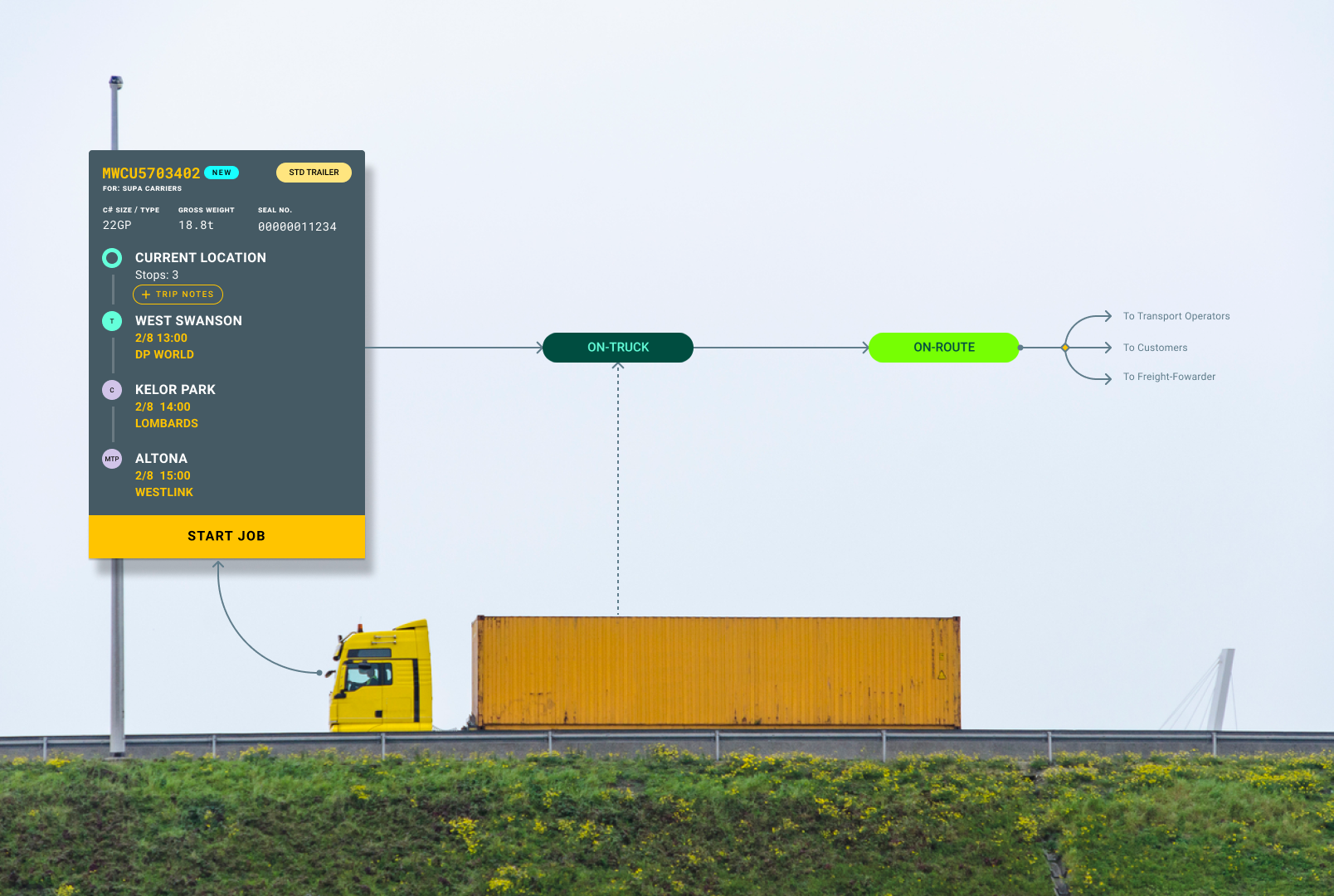
Client
OneStop.
Type
B2B New Value Product
Platform
iOS & Android app
Overview
Download one pager (coming soon)
Retrospective Summary
An itinerary management app for Australian Truck Drivers to simplify their journeys and business admin tasks
Team
x1 Designer (me)
x1 Front-end dev
x1 Full-stack dev
x2 Back-end devs
x1 Subject Matter Expert
x1 Product Manager
x1 Business Analyst
x1 Tester
My Role
Design Lead;
Product designer
Process
Lean Product Development;
Discovery → MVP
Services
End-to-end design
Strategic transformation
Hands-on execution
🚩 The Challenge 🚩
Picture the pressure of meeting a delivery window while stuck in heavy traffic, receiving new instructions via SMS as you scramble to fill in paperwork at a red light. Losing track of departure times, anticipating delays, and facing the looming question of whether recipients will still be available—all while fielding urgent calls from your manager. The imperative for change is clear and urgent.
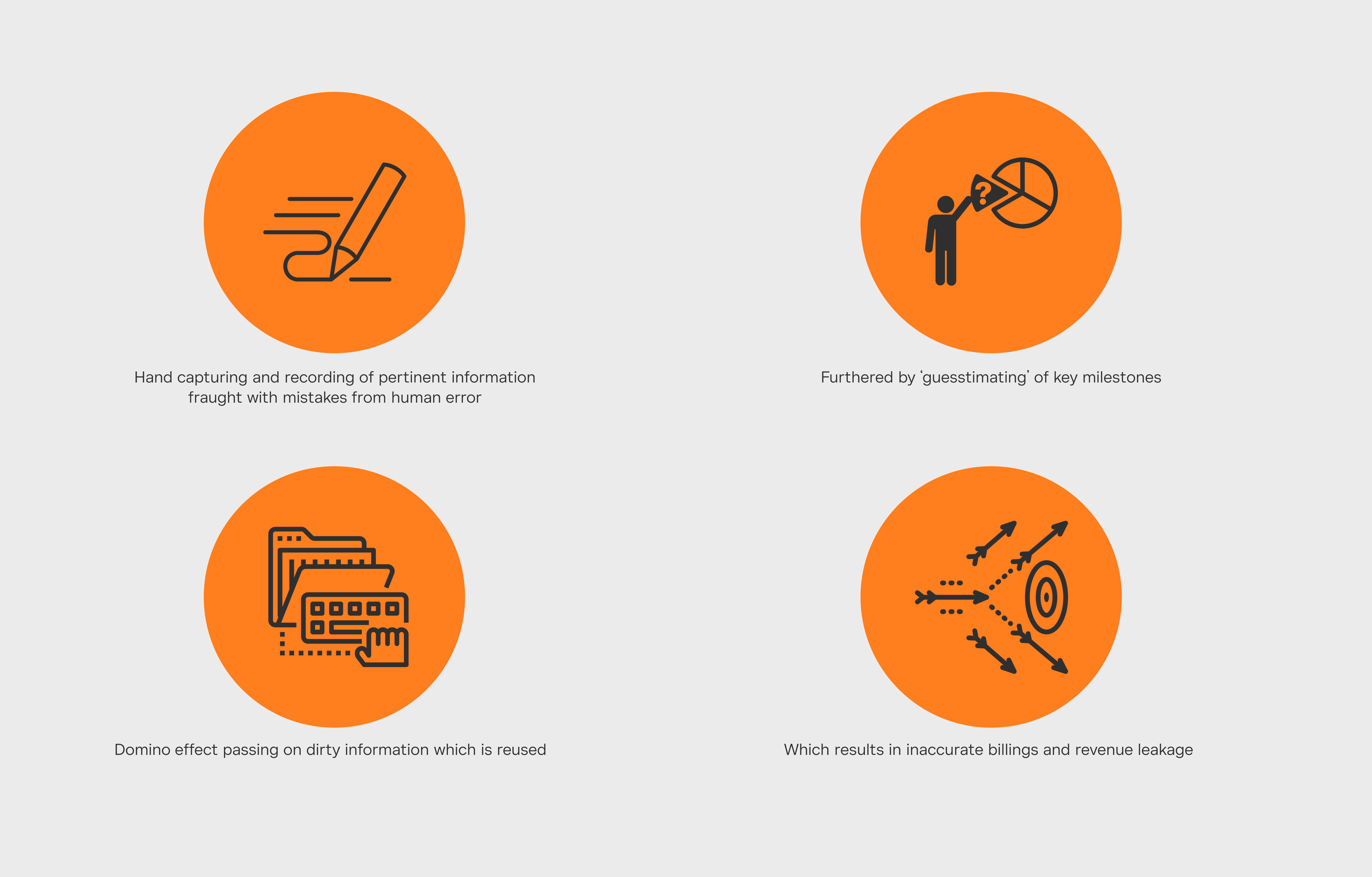
In the realm of containerised transport, Australian Truck Drivers who execute the delivery of cargo are tethered to outdated manual data capture practices leading to inaccuracies and delayed updates to deliveries. This antiquated approach not only hampers their efficiency but also has a domino effect jeopardising cash flow due to delayed invoicing, exacerbating industry-wide challenges of price-gouging and dirty data.
⚡️ What we created⚡️
The Deliver App is an itinerary management app for Australian Truck Drivers in the Full Container Load space with - real-time tracking - to simplify their journeys and amplifying overall efficiency.
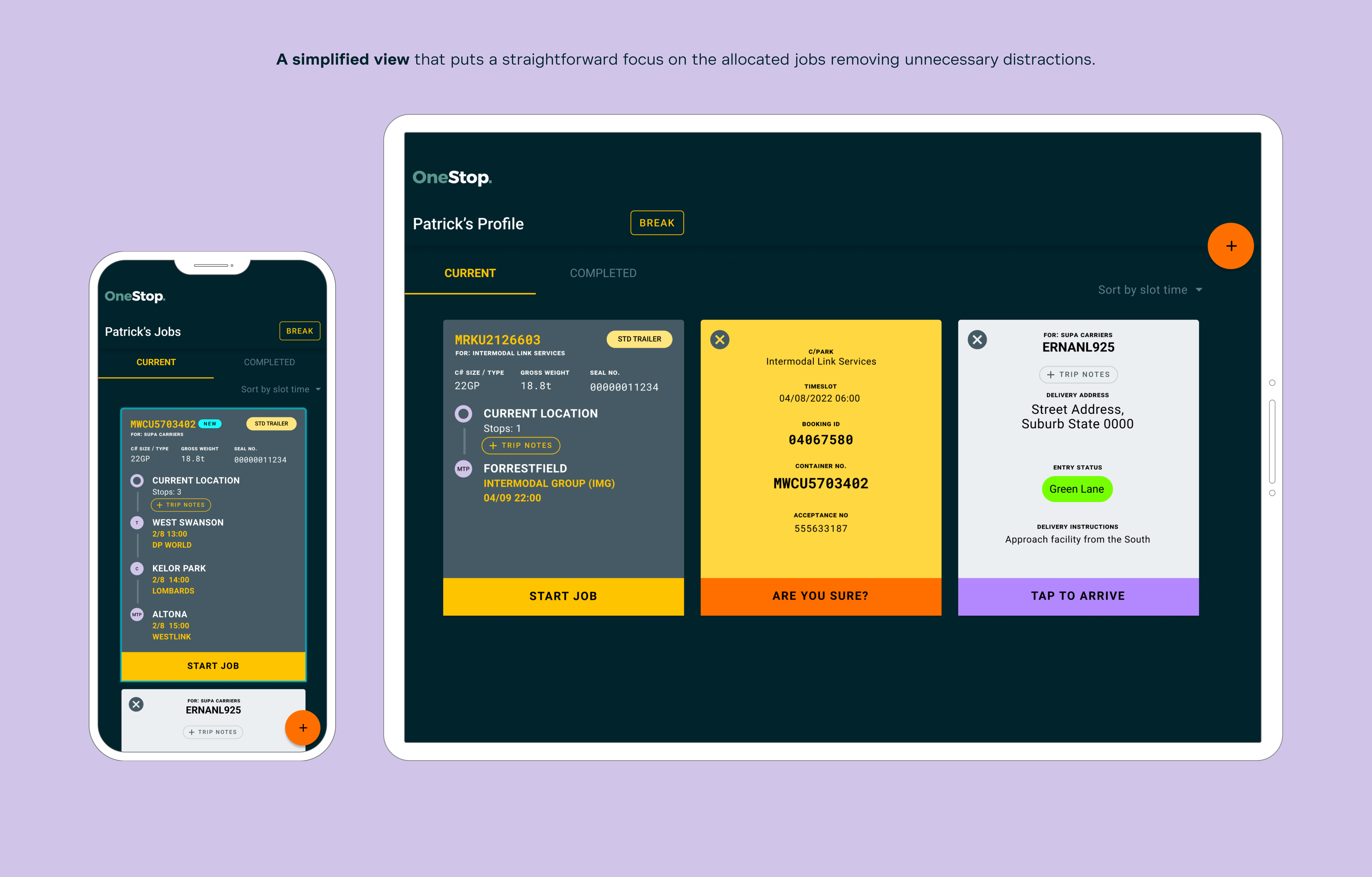
A mobile app that was co-created with Truck Drivers to support a driver’s access at any dedicated container handling facilities throughout the Australian supply chain. We designed it to be the driver's ultimate tool for moving Full container Load (FCL) cargo by simplifying the trucking experience through the help of digital bookings and electronic job allocations, location services and automating gate processes at facilities, contactless deliveries, and paperless admin, to facilitate the proof of work, proof of presence, and the proof of delivery of containerised cargo.
⚠️ In the middle of the process we had a CEO change-over and a rebrand of the organisation. Due to cost cutting the product video was not re-done with the new brand. ⚠️
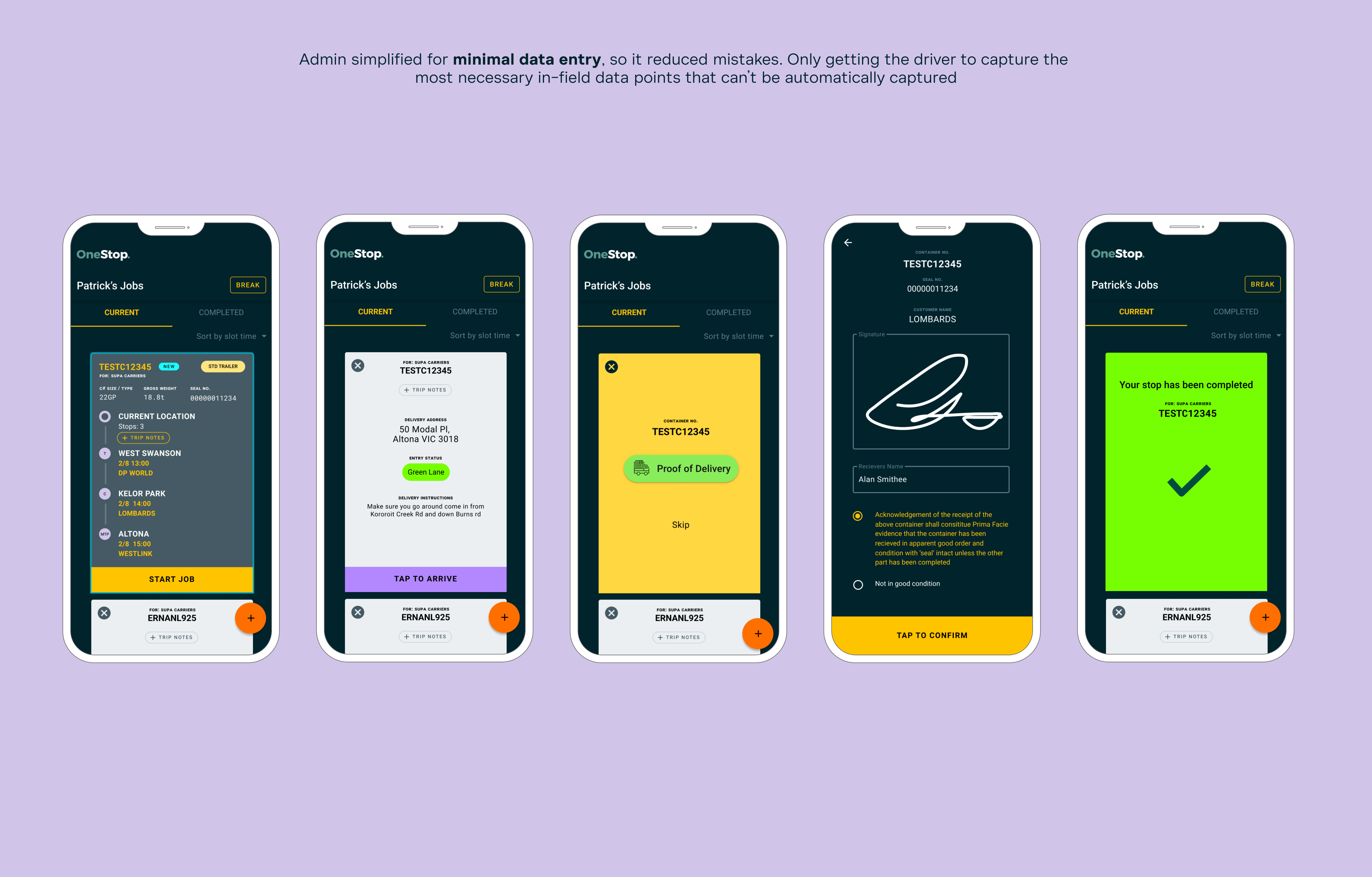
A simplified view that puts a straightforward focus on the allocated jobs removing any uneccessary distractions. Whether left open on the device screen or closed, the jobs behave the same way. Organised by either the allocation time or the slot booking time at key facilities meaning the driver can be loaded up with as many jobs as they can do or given at a moments notice. Utilising a 'dark mode' so that whether its daytime or nighttime the strain on the driver's eyes is kept to a minimum.
🎯 What were the outcomes 🎯
Impact
Changed 7000+ truck driver’s day-to-day tasks and delivery performance that impacted the accuracy of their businesses financially + improved truck-turnaround times at key facilities throughout the supply chain.
Value
Connecting and facilitating the proof of work - proof of presence - proof of delivery of containerised cargo to be 95% more accurate, 180x faster and 88% cheaper which helped to minimise revenue leakage and make their businesses operationally more efficient.
Return on Investment
A 40% year-on-year growth for our organisation for 3-5 years once fully realised.
Benefits
💎 No paperwork: circumvents the administration tasks and manual data entry that have plagued drivers
💎 Geo-location tracked so everyone knows where the driver is up to and where the job is at.
💎 Real-time: No more surprises on the road, receive instant updates on jobs from their manager.
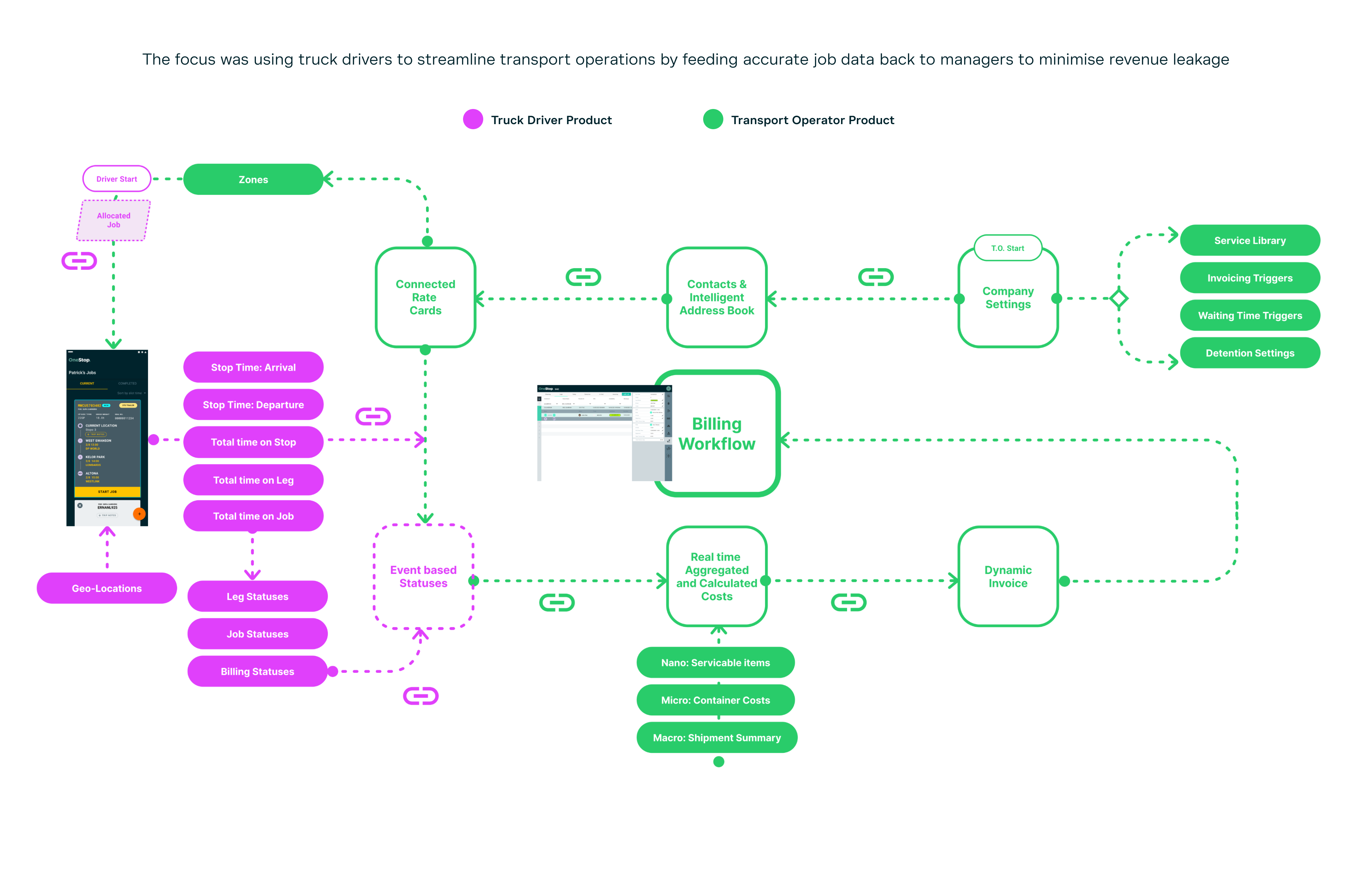
We figured out a way to connect the Deliver App as a binary product to other data products in the ecocystem – which increased visibility and communication between the driver, their manager, and their destination party – as the infield operations are now captured and shared respectively to other transactional stakeholders in near real-time aggregating and calculating costs dynamcially as they went which ultimately and positively impacted the accuracy of the billings and profitability of the job.
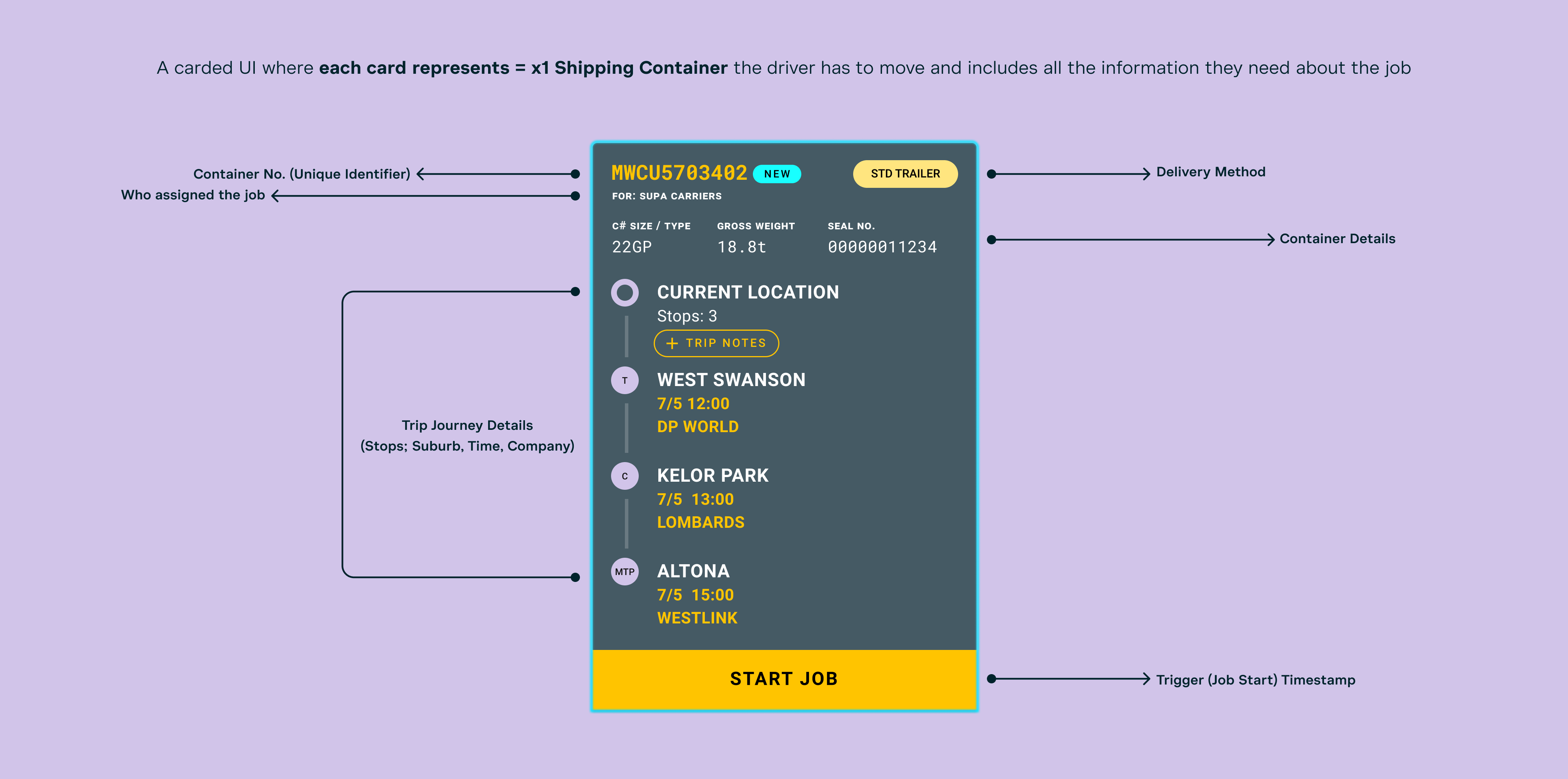
Think of this product as kind of an automated list of jobs – an ‘IFTTT’ in a carded UI format with the help of event based triggers, geo-fencing, near real time data and location tracking services under the hood to give Truck Driver's (the user) the most up-to-date information on the jobs they've been allocated to execute on, so they can just focus on driving and delivering the container and circumvent the manual data entry and admin surrounds the delivery and impacts the job costs.
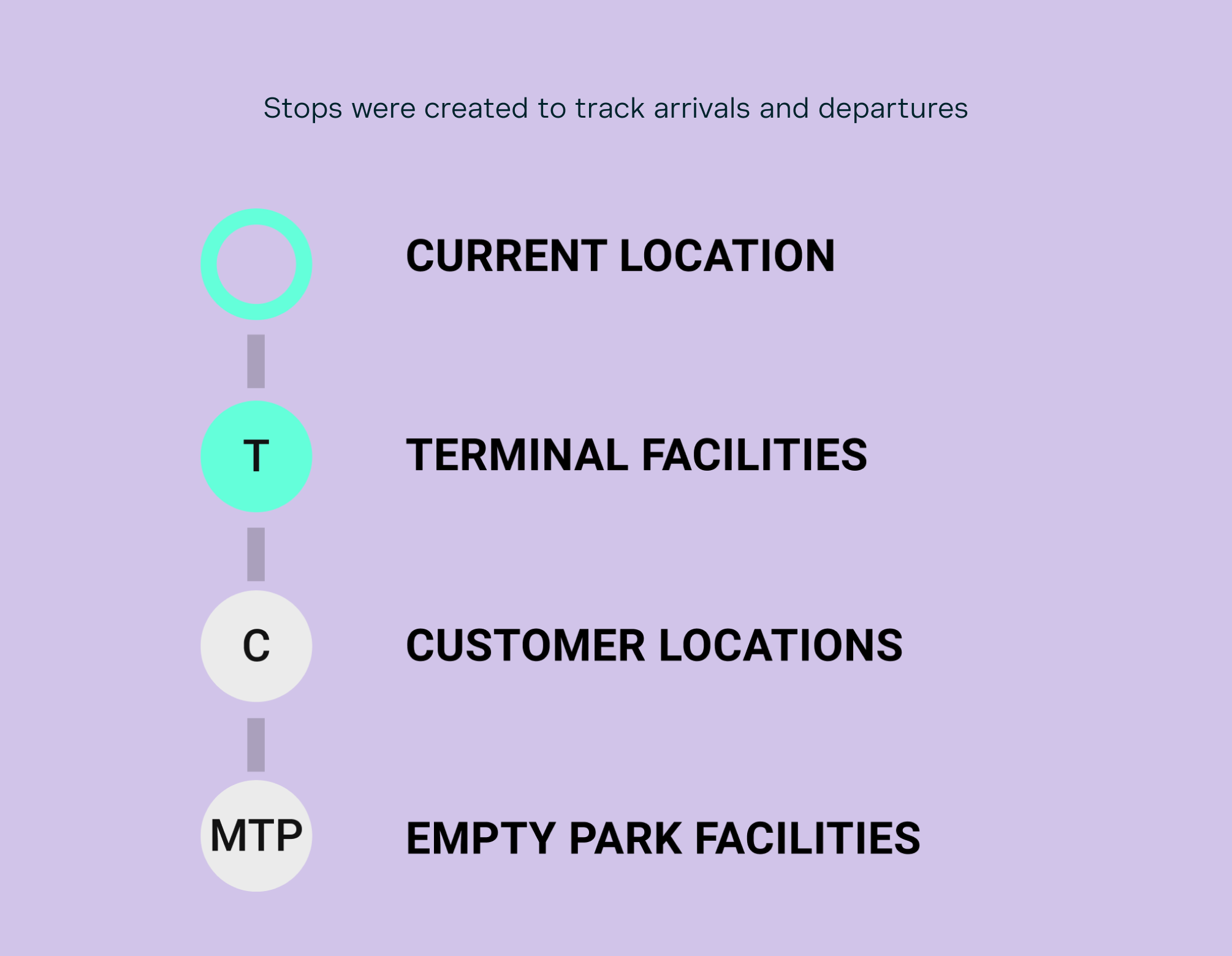
Structure in the journey by creating “stops” to help create some accuracy throughout the supply chain and track arrivals and departures with more granularity
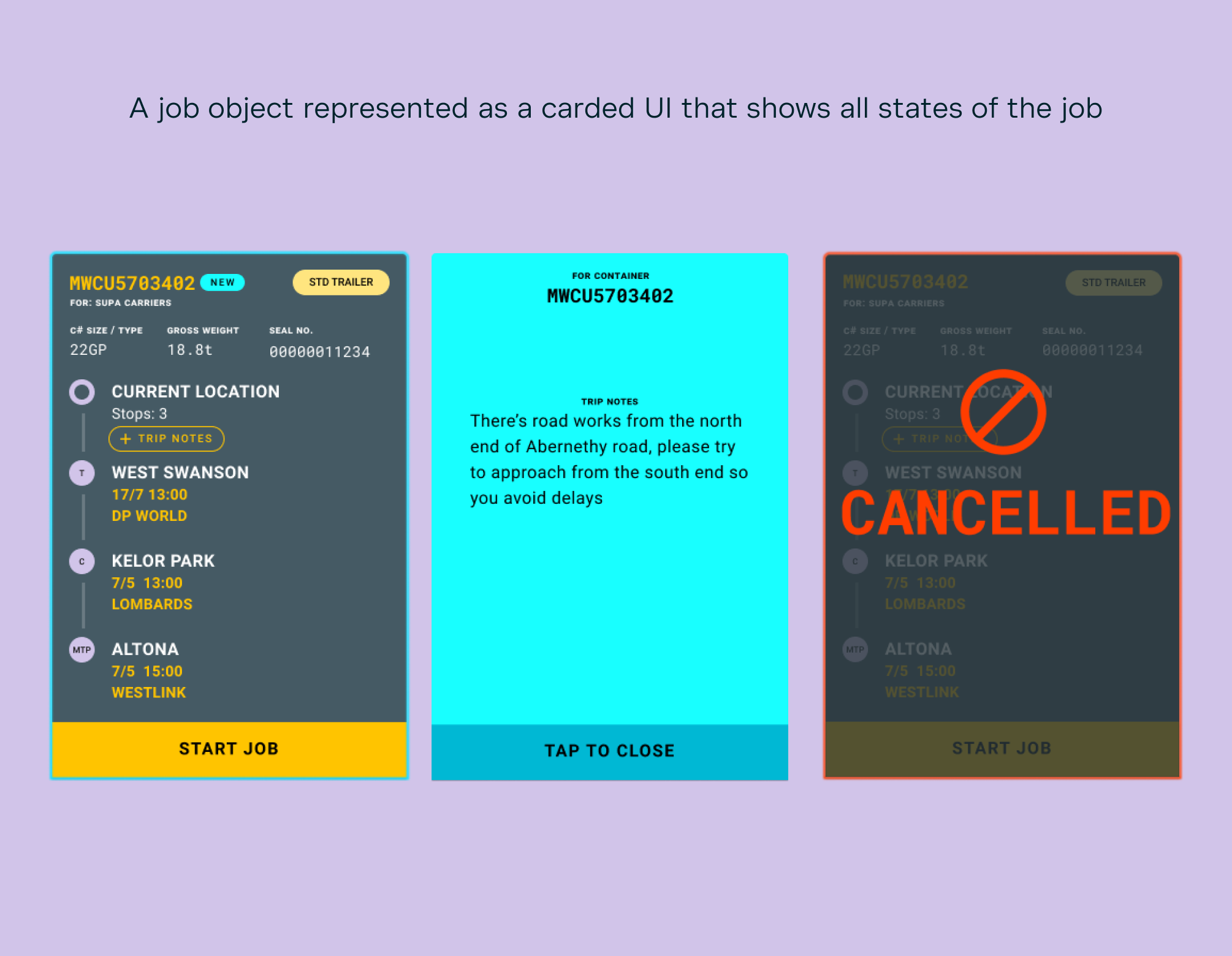
Real-time job statuses represented in the state of the job card that allowed the driver to access job information in a timely and structured manner.
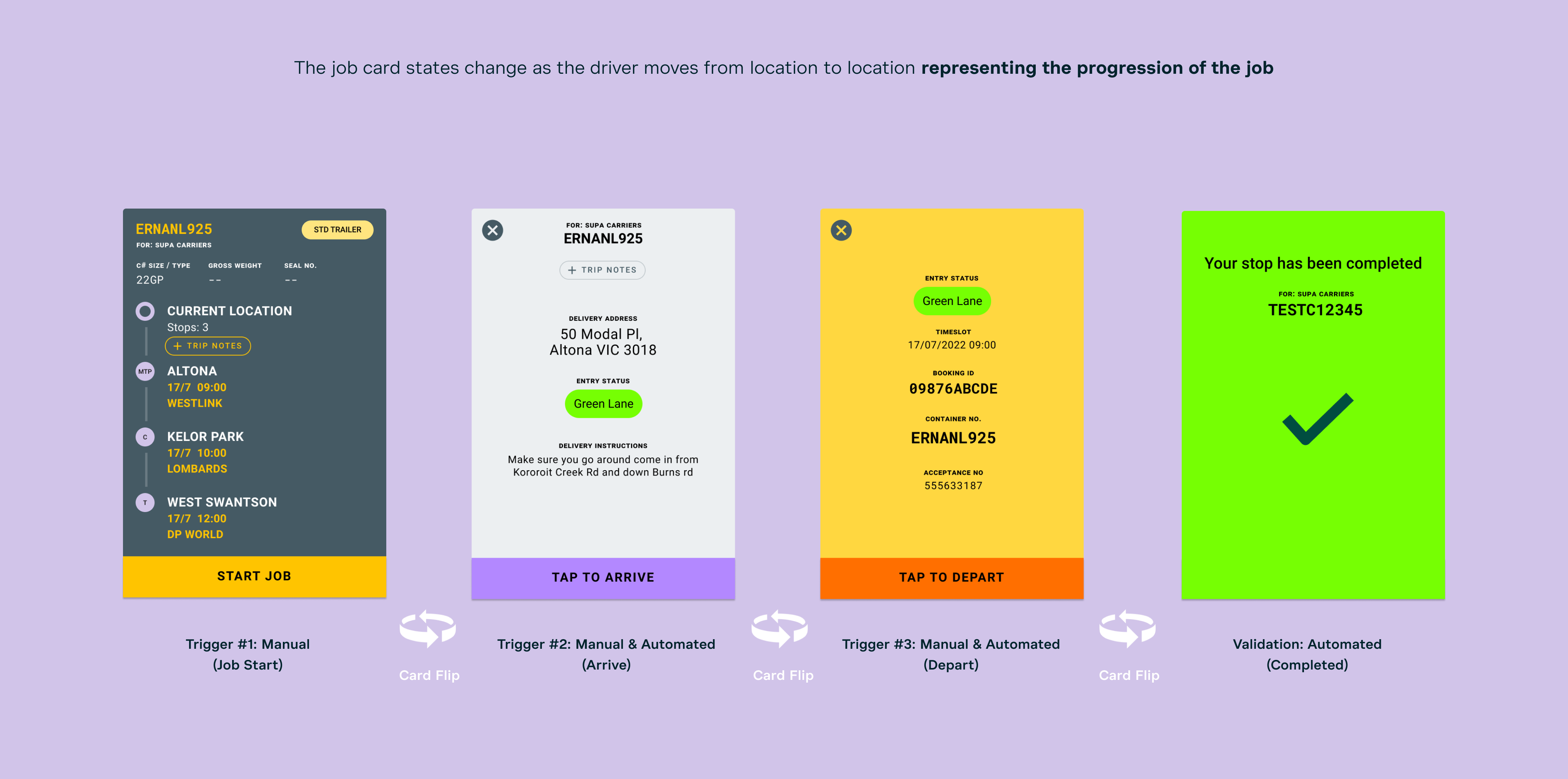
Digitally allocated jobs that trigger events with the help of geofencing and location services (OneStop Arrive) that help driver's move through a job at key locations such as Terminals, Customer facilities and Empty Parks by providing key information at the right intervals - instead of trying to find that info when you turn up.
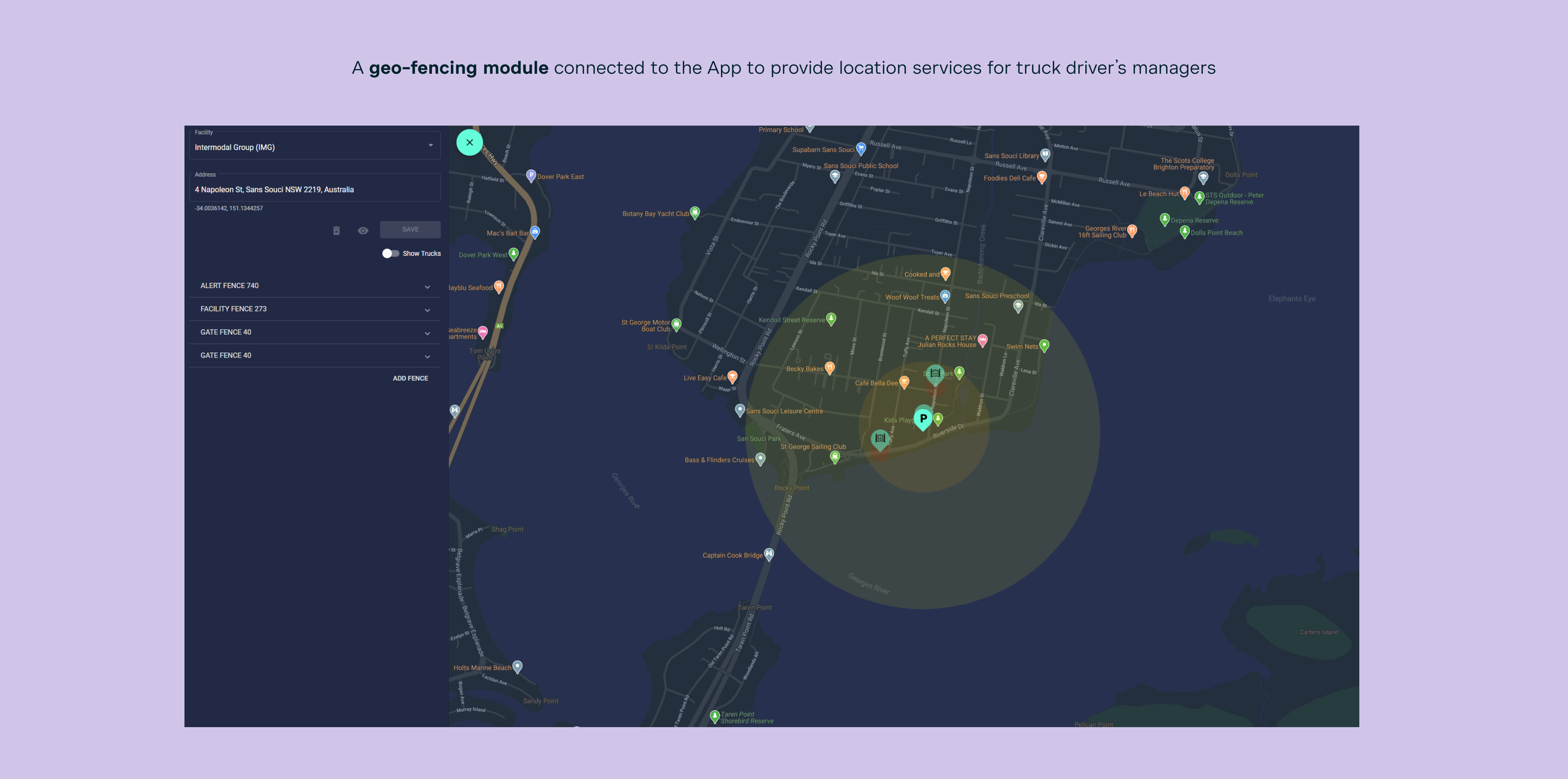
Modularised location services feature for faster processing of pick-ups and drop-offs at facilities. As the app passes through a range of designated geo-fences the truck's status is shared.
🔄 How we solved it 🔄
The Process
This was a strategic transformation initiative as a new value product that helped fill in the gaps known as the 'middle mile' and 'last mile' in logisitics and which equally benefitted truck drivers as a go-to management tool designed exclusively for their tasks.
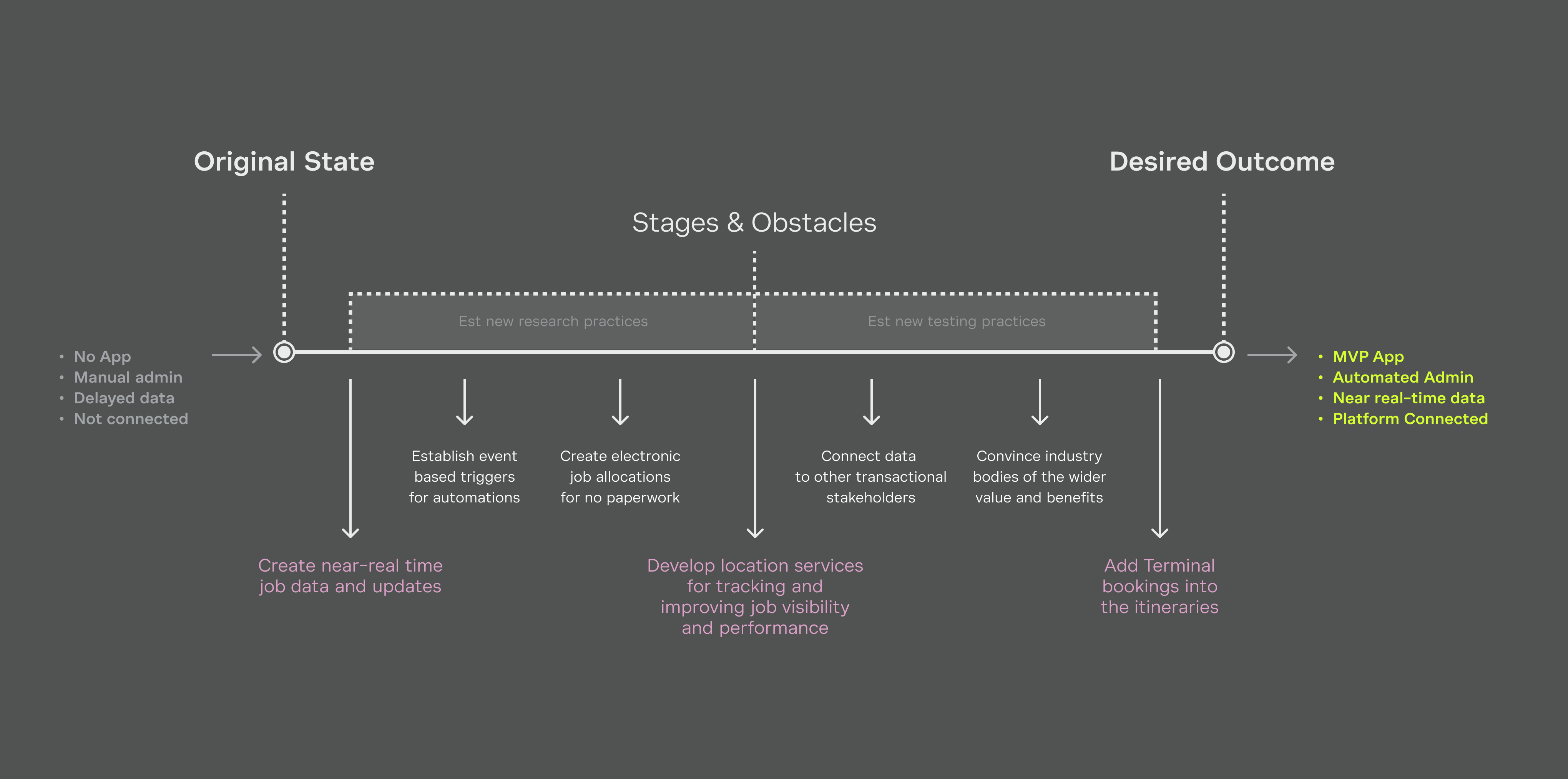
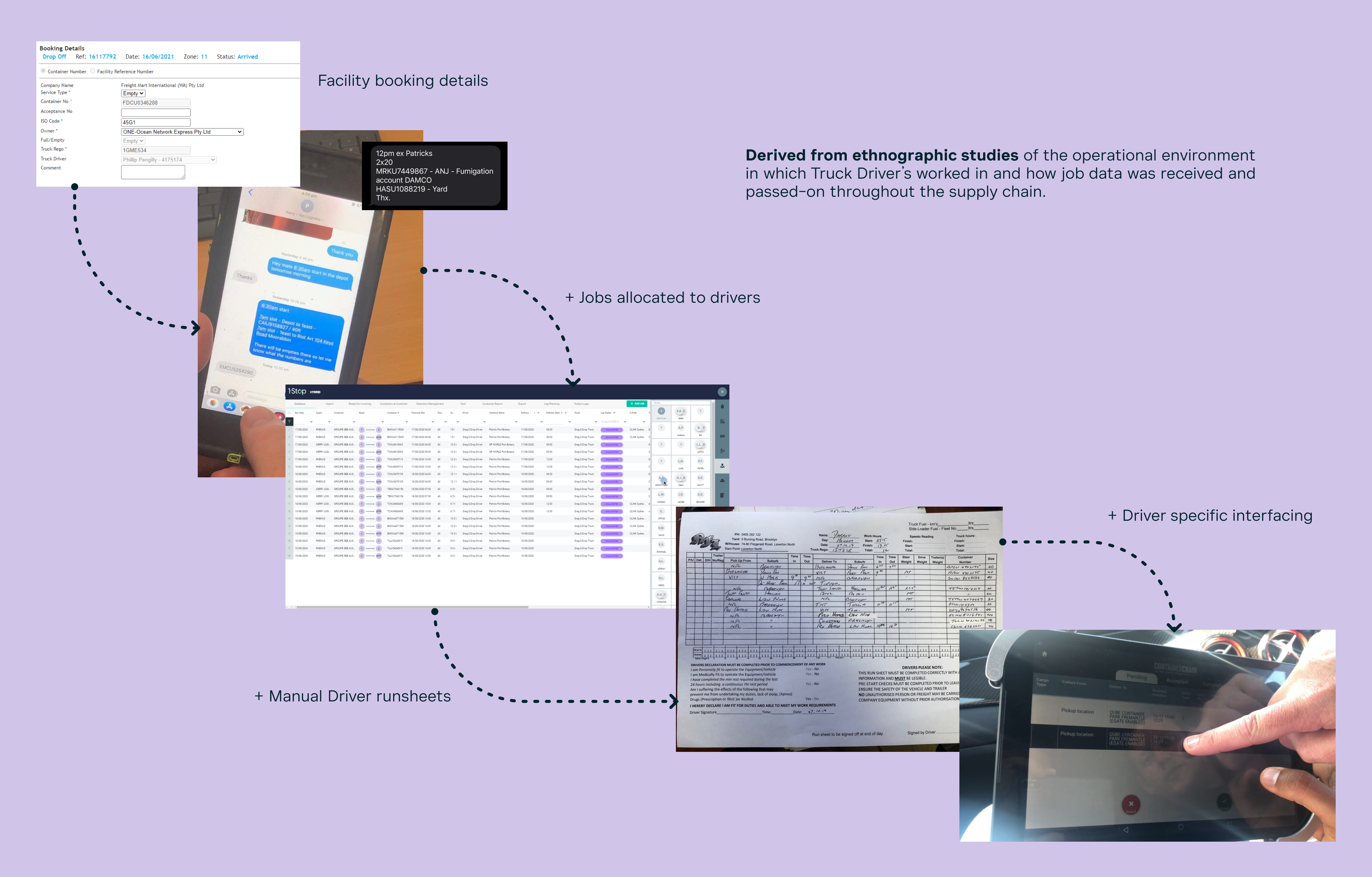
🤓 What did we learn 🤓
The Learnings
💎 We didn’t account for the Unions. We overlooked the controlling tactics or political agenda’s from the Maritime and Transport Union’s in getting the early adoption.
💎 We also didn't expect so much internal resistence given what we were solving and how it benefitted our org and ecosystem but getting buy-in from all product team and departments 'heads' who had their own agendas was something I would put more emphasis on so the 'implement' phase was easier.
💎 How much effort and cost there was associated with creating the structure of location services and geo-fencing that we continually had to stress test to ensure that it was timely, useable and cost effective.
Want help creating new value products?